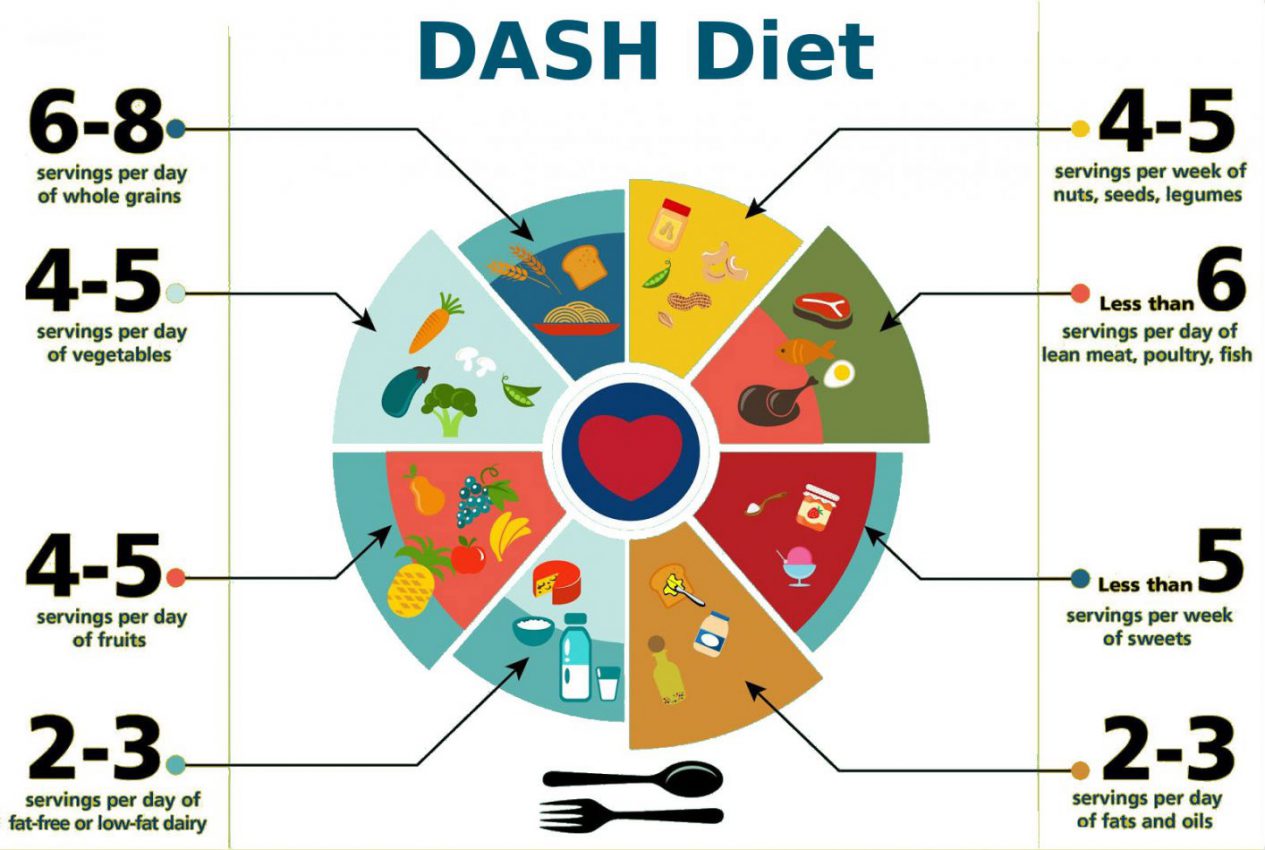In April 1997 researchers from the USA published the results of their study to assess the effect of dietary patterns on blood pressure levels. 459 adults with systolic blood pressures levels of less than 160 mm Hg and diastolic blood pressures levels of 80-95 mm Hg were enrolled into the study. For three weeks, the individuals were given a diet low in fruits, vegetables, and dairy products, with a fat content typical of the average diet in the United States, following which they were divided into three groups. For eight weeks, one group continued with the same “control” diet, a second group consumed a diet rich in fruits and vegetables, and a third group received a “combination” diet rich in fruits, vegetables, and low-fat dairy products ie with reduced saturated and total fat. At the start of the study, the average blood pressure was 131/85 mmHg. Results showed that, compared to those who remained on the “control” diet, the “combination” diet reduced the blood pressure levels to approximately 125/82 mmHg, whilst the fruit and vegetable diet reduced blood pressure levels to 128/84 mmHg. 133 of the 459 individuals had been diagnosed with hypertension prior to the start of the study (systolic pressure of 140/90 mmHg or above). A further analysis with respect to these individuals revealed that those on the “combination” diet had a systolic blood pressure levels which was approximately 11 mmHg lower and diastolic levels 6 mmHg lower than those individuals who were on the “control” diet.
*Please see Dashdiet.org for more information about the DASH diet (Dietary Approach to Stop Hypertension)
Appel LJ et al. A clinical trial of the effects of dietary patterns on blood pressure. DASH Collaborative Research Group. N Engl J Med. 1997 Apr 17;336(16):1117-24.

